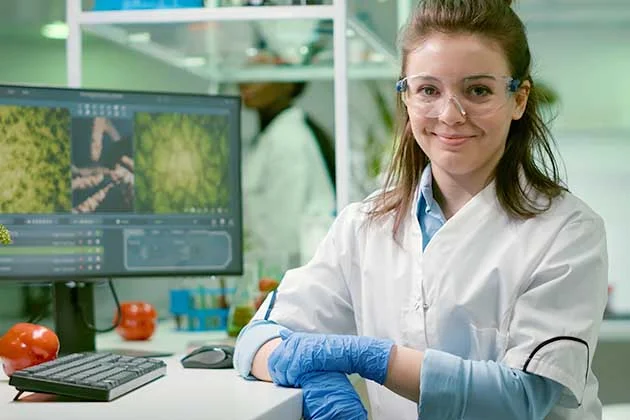Introduction to Medical Biotechnology Advancements
In the realm of medical biotechnology, the convergence of scientific innovation and healthcare has paved the way for remarkable advancements. This article delves into the transformative impact of biotechnological research on modern medicine, exploring how these breakthroughs are reshaping healthcare landscapes worldwide.
Understanding Biotechnology
Biotechnology encompasses a diverse array of scientific disciplines aimed at harnessing biological systems for technological applications. In medical biotechnology, this translates into leveraging biological processes, organisms, or systems to develop products and solutions that improve human health.
The Evolution of Medical Biotechnology
From its early beginnings rooted in basic biological research, medical biotechnology has evolved exponentially. Historical milestones mark pivotal moments where scientific discoveries laid the groundwork for today’s sophisticated biotechnological applications in healthcare.

Biotechnological Innovations Driving Healthcare
Innovations in Therapeutics
The forefront of medical biotechnology advancements lies in the development of novel therapeutics. These include biotechnological breakthroughs such as genetically engineered proteins, monoclonal antibodies, and nucleic acid-based therapies, each designed to target specific disease mechanisms with unprecedented precision.
The field of medical biotechnology is witnessing a revolution in therapeutic approaches, driven by cutting-edge innovations that are redefining treatment modalities. At the forefront of these advancements are biotechnological breakthroughs that leverage the understanding of biological systems at the molecular level to develop targeted therapies.
Genetically engineered proteins represent one of the most significant contributions of medical biotechnology to modern healthcare. These proteins are designed to mimic or enhance the functions of naturally occurring molecules in the body, offering precise mechanisms for therapeutic intervention. For instance, recombinant DNA technology has enabled the production of therapeutic proteins like insulin for diabetes and growth factors for various disorders.
Another pivotal advancement is the development of monoclonal antibodies, which are engineered to bind to specific targets in the body, such as receptors on cancer cells or inflammatory markers. This targeted approach minimizes collateral damage to healthy tissues, enhancing the efficacy and safety of treatments. Monoclonal antibodies have revolutionized the management of diseases ranging from cancer and autoimmune disorders to infectious diseases like COVID-19.
Nucleic acid-based therapies, including RNA interference (RNAi) and gene editing technologies like CRISPR-Cas9, represent the cutting edge of biotechnological innovation in therapeutics. RNAi therapies silence or modulate the expression of disease-causing genes, offering potential treatments for genetic disorders and viral infections. Meanwhile, CRISPR-Cas9 technology holds promise for precise gene editing, allowing scientists to correct genetic mutations underlying diseases or enhance therapeutic responses in personalized medicine.
Diagnostic Advancements
In addition to therapeutics, medical biotechnology has transformed diagnostic capabilities, ushering in an era of precision medicine through advanced molecular techniques. Genomic sequencing, for example, enables comprehensive analysis of an individual’s genetic makeup, identifying genetic predispositions to diseases and guiding personalized treatment strategies.
Proteomics, another key area of biotechnological diagnostics, involves the study of proteins and their interactions within biological systems. By analyzing protein profiles in tissues or bodily fluids, proteomic technologies facilitate early detection of diseases such as cancer, cardiovascular disorders, and neurological conditions. These insights not only aid in disease diagnosis but also inform therapeutic decisions, optimizing patient outcomes.
Molecular imaging techniques, such as positron emission tomography (PET) and magnetic resonance imaging (MRI), have been enhanced by medical biotechnology to provide detailed images of cellular and molecular processes in the body. These imaging modalities enable physicians to visualize disease progression, monitor treatment responses, and precisely target therapies to affected areas, thereby improving diagnostic accuracy and patient care.
Case Studies of Biotechnological Treatment Successes
To illustrate the transformative impact of medical biotechnology in clinical settings, consider the case of personalized cancer therapies. Through genomic profiling and molecular diagnostics, oncologists can identify specific genetic mutations driving tumor growth in individual patients. This information allows for the selection of targeted therapies, such as kinase inhibitors or immune checkpoint inhibitors, which disrupt cancer cell signaling pathways or enhance immune responses against tumors.
In the realm of rare genetic disorders, biotechnological breakthroughs have led to the development of novel therapies that address the underlying genetic defects. For example, enzyme replacement therapies (ERTs) have been engineered to supplement deficient enzymes in patients with lysosomal storage disorders, improving disease management and quality of life. Similarly, gene therapy approaches aim to deliver functional copies of defective genes into patients’ cells, potentially offering curative treatments for inherited disorders like cystic fibrosis and muscular dystrophy.
Enhancing Personalized Medicine
Central to medical biotechnology is the concept of personalized medicine, tailoring treatments to individual genetic profiles and biomarkers. This approach not only optimizes therapeutic efficacy but also minimizes adverse effects, marking a paradigm shift towards precision healthcare solutions.
Biotechnological Research in Regenerative Medicine
Advances in medical biotechnology have propelled regenerative medicine forward, particularly in the realm of stem cell research and tissue engineering. These technologies hold promise for repairing damaged tissues and organs, offering potential cures for previously untreatable conditions.
Applications of Biotechnology in Vaccine Development
The rapid development of vaccines against global health threats like infectious diseases underscores the agility and efficacy of biotechnological interventions. Through genetic engineering and recombinant DNA technology, vaccines can be produced swiftly and tailored to combat evolving pathogens.
Biotechnology’s Role in Cancer Treatment
In oncology, medical biotechnology has introduced targeted therapies and immunotherapies that specifically attack cancer cells while sparing healthy tissues. These advancements are revolutionizing cancer treatment paradigms, improving survival rates and quality of life for patients.
Ethical Considerations in Medical Biotechnology
As biotechnological research continues to push boundaries, ethical considerations surrounding genetic manipulation, data privacy, and equitable access to biotechnological innovations remain paramount. Balancing scientific progress with ethical responsibility ensures that societal benefits are maximized while risks are mitigated.
Future Directions in Medical Biotechnology
Looking ahead, the future of medical biotechnology promises even greater strides. Emerging technologies such as CRISPR gene editing, synthetic biology, and nanotechnology hold potential for groundbreaking applications in disease prevention, treatment, and healthcare delivery.
Conclusion
In conclusion, medical biotechnology advancements represent a testament to human ingenuity and scientific prowess. By harnessing the power of biotechnological research, healthcare is poised to enter an era of unprecedented innovation and personalized care. As the journey continues, embracing ethical principles and fostering collaboration will be crucial in maximizing the transformative impact of biotechnology on global health.
Medical biotechnology continues to drive remarkable advancements in healthcare by integrating scientific discoveries with clinical applications. The convergence of biotechnological innovations in therapeutics and diagnostics holds promise for addressing complex medical challenges and improving patient outcomes. As research continues to expand the frontiers of biotechnology, the future of healthcare is increasingly defined by personalized medicine, precision diagnostics, and transformative therapies that enhance the quality of life for individuals worldwide






